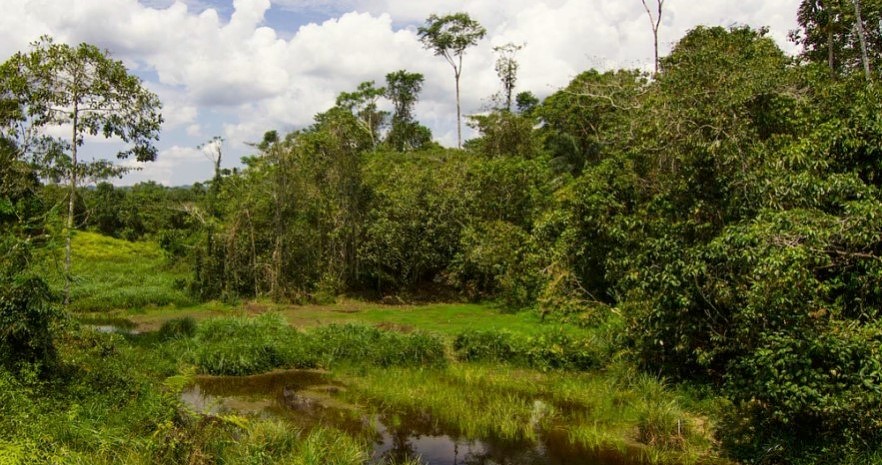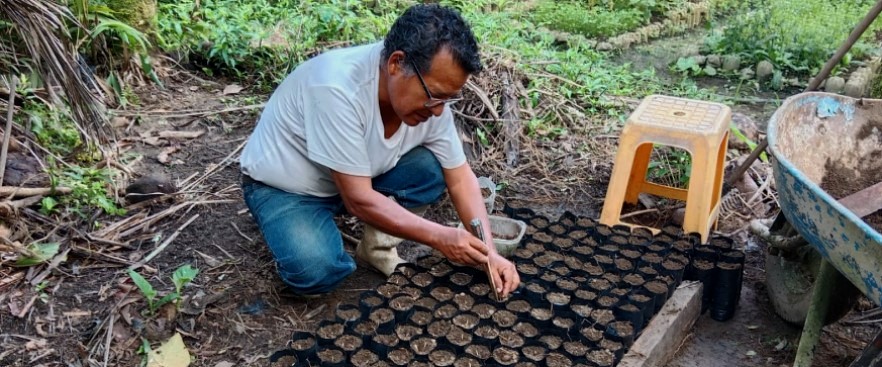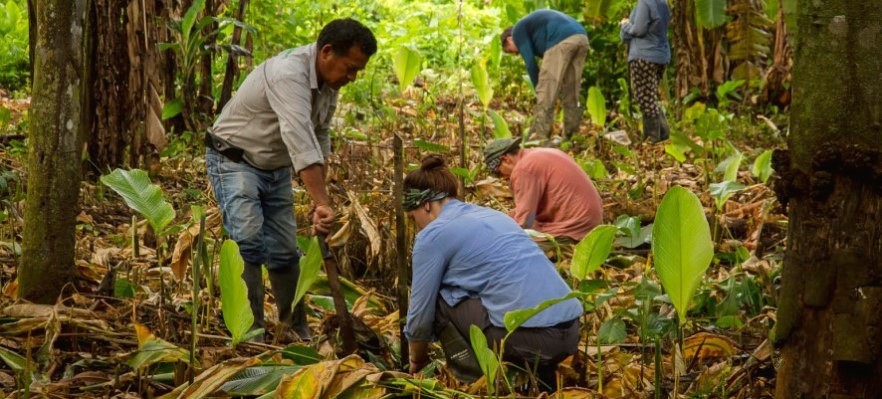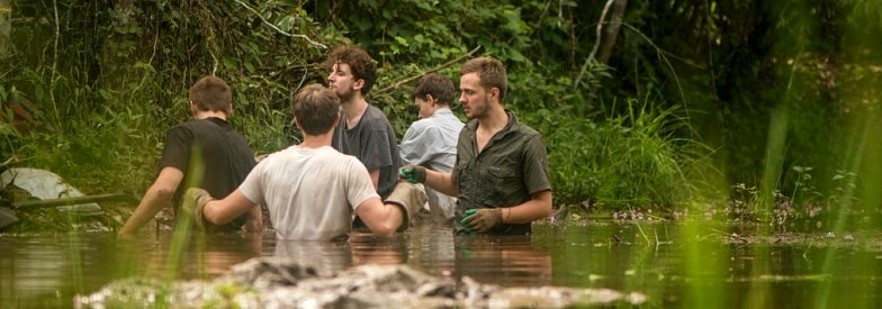Pod Environmental Fund
Pod Volunteer is replanting a wetland in the Amazon!
For every volunteer that joins a Pod Volunteer project, we donate to environmental initiatives in countries we work in, through our Pod Environmental Fund. Previously we have funded reforestation in Belize and community solar lighting in Ghana. Our Pod Environmental Fund is now financing the replanting of a wetland area in the Amazon rainforest in Peru!
Where will the fund be helping?
The wetlands are located in an area surrounding the Manu Biosphere reserve in the Peruvian Amazon, an area that has been severely degraded through deforestation and is in need of replanting. The reforestation will improve biodiversity and help to remove carbon dioxide from the atmosphere and lock it away for decades.

What will the money be used for?
The Pod Environmental Fund will pay for the purchase of 1,700 new plants. In addition to the plants, we will cover the cost of training and employing field staff, tools, safety equipment and signage.
Who is managing the reforestation project?
The reforestation project is being delivered by a local Amazon Conservation team. They have been working since 2003 with a bold mission to restore and revitalize a nearly destroyed forest. They have already successfully transformed large areas into a thriving ecosystem that serves as a beacon of biodiversity and sustainability and with the help of our fund are now able to extend their reach to this new area.
The project is being managed by the incredible Reynaldo Ochoa and we are honoured to be able to help him further his passion to restore his forest homeland. Reynaldo is a true inspiration, dedicating his life to finding new ways to sustainably live in balance with the environment. Find out all about his journey in this film, which won Best short film at the UN Forest Short Film Festival and UK Green festival!
What will be planted?
There will be a diversity of new plants, including native trees such as Cedrela odorata (cedar), Swietenia macrophylla (mahogany), Bertholletia excelsa (Brazil nut), Ceiba pentandra (kapok), Cinnamomum camphora (camphor) and Cedrelinga catenaeformis (tornillo).
And fruit trees such as Cecropia peltata (chimbillo), Inga edulis (ice-cream-bean) and Carica papaya (papayas), and various plants such as Musa spp. (bananas), Averrhoa carambola (starfruits) and Bactris gasipaes (peach-palms).

What work is involved in looking after the new trees?
The project requires continuous maintenance and annual reforestation for at least five years (which will be done by the local team and volunteers). This is due to the high mortality rate of tree species, caused by insects, caterpillars, mammals, fungi, bacteria, and other invasive plant species.

How will the restored wetland help the ecosystem and forest animals?
By planting native species, the aim is to restore suitable habitats for local fauna and contribute to soil stabilization, water retention, and overall habitat quality improvement. Invasive species such as grass and foliage will also be removed.
The reforestation of the wetland will provide food for birds, mammals, and other species, as well as a home and natural refuge for many birds and insects that have lost their habitat due to logging.

Palm trees thrive in places near water and can attract birds, especially macaws. Due to their slow growth, they become perfect perching plants for birds like macaws. Additionally, when the tree eventually dies, macaws use the trunks for nesting, completing a perfect cycle for the conservation and survival of this species.
The mix of slow-growing hardwood trees with fast-growing plants like banana and papaya, along with other medium growth plants, will help enrich the soil with nitrogen and reactivate biodiversity. These plants will be placed a little further away from the wetland due to the nature of their growth and to provide a route for mammals, such as monkeys, to access the fruits.
There will also be an important environmental education aspect, where people from local communities and other organisations can be shown the reforestation process to encourage restoration in other locations too.
How will our Pod volunteers help?
Our volunteers and interns will be involved in the preparation, planting, monitoring and research of the newly reforested area.
The complete restoration of the wetland is projected for 2030 – once the new trees have become more established. We are excited to see what the future brings!












